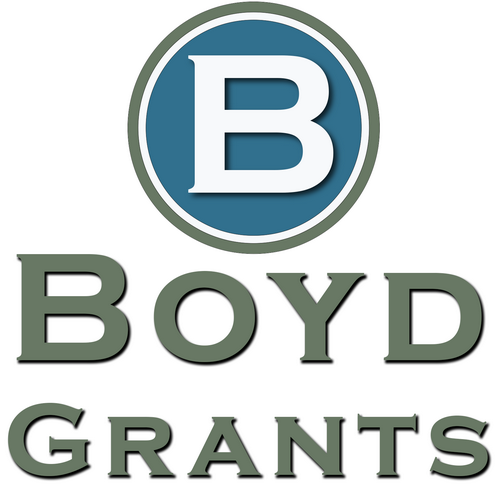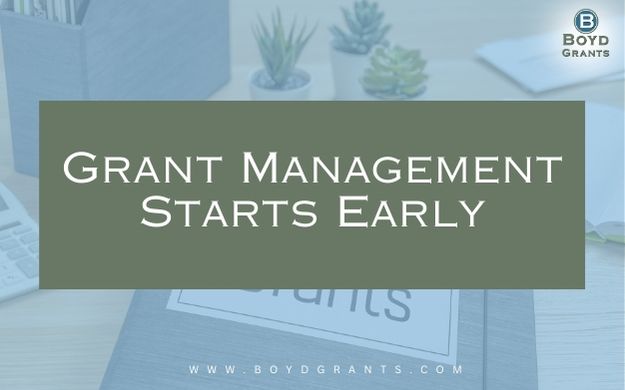Winning a grant is a huge accomplishment, but it’s only the beginning of a long journey. Too often, organizations make the mistake of thinking about grant management only after they’ve secured the funding. However, successful grant management doesn’t start the day the funds are awarded—it begins long before that, during the proposal stage. By putting together a solid management plan up front, you not only set yourself up for success, but you also show funders that you’re ready to hit the ground running. Here’s why starting your grant management early is essential.
Why Early Grant Management Planning Matters
Think of the grant proposal as a blueprint for your project. A well-thought-out proposal doesn’t just highlight the goals of your project—it should also include a clear roadmap for how you’ll manage the funds, track progress, and report results. When you include these details during the proposal stage, you demonstrate to funders that you’re organized, capable, and committed to delivering the intended outcomes. This proactive approach can set you apart from other applicants and increase your chances of securing funding.
Here’s why early planning makes a difference:
1. Clarifies Roles and Responsibilities
One of the biggest challenges in managing a grant is ensuring everyone involved knows their roles and responsibilities. Waiting until after you’ve won the grant to assign tasks can lead to confusion, delays, and missed deadlines. When you plan ahead, you can clearly define who will do what and when, ensuring that every team member is on the same page from the start. Whether it’s program staff, financial managers, or external partners, everyone should understand their specific contributions to the project.
A clear management plan also helps with communication. Everyone involved will know who to turn to for what, making collaboration smoother and more efficient. It’s a simple step that can save time and prevent miscommunications later on.
2. Tracks Success and Progress
A successful grant isn’t just about achieving the final goals—it’s about making continuous progress toward those goals. By thinking through how you’ll track success during the proposal stage, you’re setting yourself up to measure impact throughout the life of the grant.
You should outline key performance indicators (KPIs) that you’ll use to track progress, and develop systems for monitoring those metrics. Whether it’s through regular check-ins, data collection tools, or project management software, having a system in place ensures that you can easily assess how the project is progressing. This approach also allows you to make adjustments along the way if things aren’t going as planned, ensuring you stay on course.
3. Makes Reporting Efficient
One of the most time-consuming aspects of grant management is reporting progress to funders. Grantors typically require regular updates to track the status of your project, and those reports need to be both comprehensive and timely. By planning how you’ll handle reporting during the proposal stage, you make this process much more manageable.
You should define your reporting structure early on, including timelines, formats, and the types of information that will be included in progress reports. This way, when it’s time to submit your first report, you won’t be scrambling to gather data or figure out how to format the document. A clear reporting plan also allows you to communicate effectively with funders, keeping them informed of both successes and any challenges that arise.
4. Prevents Headaches and Delays
The best way to avoid delays or mistakes in grant management is to plan ahead. A solid management plan reduces the likelihood of surprises and helps you stay ahead of potential issues. When you create a comprehensive plan early, you can anticipate problems, allocate resources effectively, and ensure that all team members are aligned in their efforts.
Additionally, early planning helps you ensure that the necessary infrastructure is in place to manage the funds appropriately, track expenses, and stay compliant with the terms of the grant. Funders want to know that their money will be well-managed, and outlining your strategy for financial oversight demonstrates your commitment to accountability.
Key Components of a Solid Grant Management Plan
To get you started, here are the key components of a comprehensive grant management plan that should be included in your proposal:
1. Roles and Responsibilities
- Define who will oversee the project, who will manage finances, and who will handle reporting.
- Include any external partners or consultants and clarify their contributions.
2. Monitoring and Evaluation Plan
- Identify the specific metrics you’ll use to track success.
- Define the frequency of evaluations and the tools you’ll use for data collection.
3. Reporting Plan
- Outline the required reporting timelines, including progress reports and final reports.
- Clarify what information will be included in each report and who is responsible for submitting them.
4. Budget and Financial Oversight
- Create a clear budget, specifying how funds will be allocated.
- Establish procedures for tracking expenses, ensuring compliance, and maintaining accurate records.
5. Risk Management
- Anticipate potential challenges or obstacles and outline strategies for addressing them.
- Include a plan for handling unforeseen issues or changes in the project scope.
The Benefits of Starting Early
By addressing these aspects in your proposal, you set a clear path for the project’s execution and show that you’re ready to manage the grant from day one. Here are some of the key benefits of starting early:
- Increased Funders’ Confidence: Funders are more likely to invest in projects that have a well-defined management plan. It shows that you are organized and committed to delivering results.
- Reduced Stress: When you plan ahead, you avoid the panic of scrambling to assign roles or figure out how to report progress when the grant is awarded.
- Better Outcomes: With a solid plan in place, your project is more likely to stay on track and achieve its intended goals. Tracking success from the start means you can make adjustments as needed and improve outcomes over time.
Final Thoughts
Grant management is not a last-minute task. By developing a management plan during the proposal stage, you set yourself up for success and show funders that you’re fully prepared to implement the project and achieve the desired outcomes. Early planning means fewer headaches down the line and ensures that your grant funds are used effectively to make the greatest possible impact.
The sooner you start planning, the smoother the entire process will be, from initial award to final report. So, don’t wait until after you’ve won the grant—begin your grant management strategy early and hit the ground running.


Recent Comments